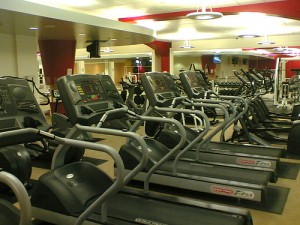Since the economy tanked, it’s become a little easier to live a frugal lifestyle without facing judgment. No matter how bad the recession gets, though, we still face people who just don’t get it. We’re constantly answering rude questions about how we choose to live our lives.
“Why are you throwing your money away on rent when house prices are so low?”
Because we don’t have money for a down payment and we’re not ready to lock ourselves into a mortgage anyway.
“You mean you share a car? Why?”
We don’t want to take on the expense of an additional car when we can easily survive with one. Not only would another car mean an additional car payment, it would also mean more insurance, more gas, and more emissions.
“What do you mean you don’t go out to dinner or buy yourself things? You work too hard not to enjoy life.”
We do work hard, but we’d rather save for future goals than spend all of our money today on things that matter less to us.
“Why wait for the things you want? If you want to take a vacation or buy something, just charge it now and pay it down later.”
I’ve lived through the stress of high interest credit card payments. No thanks.
It’s frustrating to face this judgment from people around us. Our closest friends and family are supportive, but we still face a handful of acquaintances that don’t understand our choices. Instead of accepting that we’ve chosen to live differently, they treat us like we’re deprived and practically living in poverty because we don’t make the same choices they do.
I must admit that it can be tempting to give in. I would love to eat out a couple times a week, refurnish our apartment now, take off this summer for Europe instead of waiting another year, take advantage of a housing market that’s pretty much bottomed out. But I know we’d never reach our goals if we gave in, and those goals are more important to me than getting what I want right now.
Fighting the temptation is easier than facing the judgment, though. Maybe someday I’ll be that person that truly lives the life I want to live without caring what others think, but for now it’s just annoying.
I feel like living the frugal lifestyle puts us under a microscope. Because our choices are different, people feel like they have the right to comment on things that are none of their business.
The worst part is, when I answer their questions, they tend to act defensive. I’m not judging their choices, and would never compare their situations to my own, but when they ask me why we live the way we do and I explain myself, there is always a feeling that I’m judging them for not saving, living on credit, or taking on a mortgage they probably can’t afford.
How do you handle the frugal microscope?


